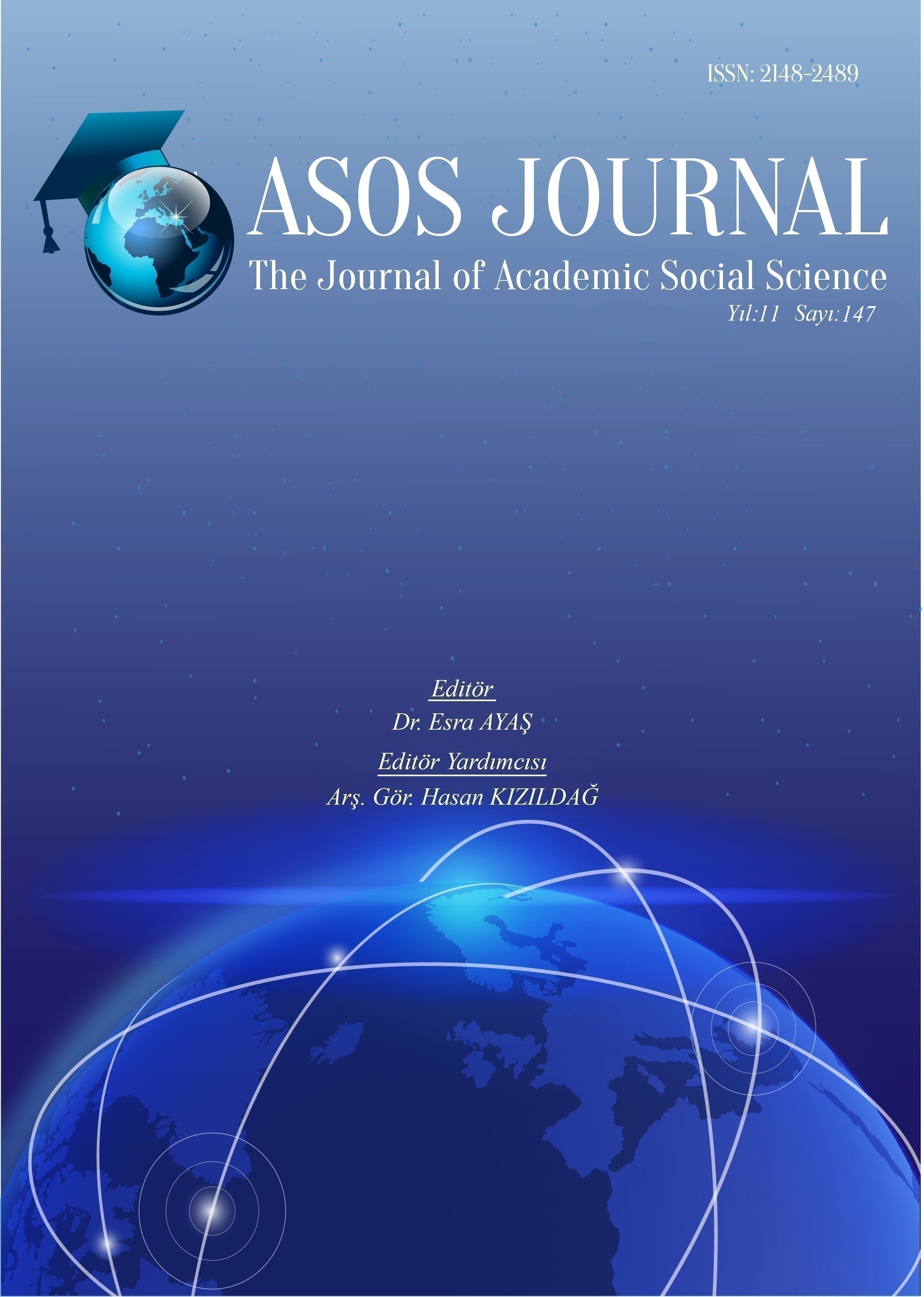Author :
Abstract
Müzik eğitimi, toplumların gelişimine katkı sağlamasının yanı sıra toplumların kültürel biriki-min değerli bir parçası olması sebebiyle toplumların gelişiminde yol gösterici olarak önemli bir göreve sahiptir. Müzik, bireyin doğum öncesi dönemden itibaren hayatına dâhil olsa da, pro-fesyonel anlamda ilk deneyimlenmesi okullardaki müzik dersleri ile gerçekleşmektedir. Bu araştırma, müzik teorisi konu ve kazanımlarına bağlı olarak Lise 9.,10.,11. ve 12. sınıf öğrenci-lerinin müzik bilgilerini ve bu bilgi düzeyinin ne düzeyde algılandığının ortaya konmasını he-deflemektedir. Çalışmada veriler, “Müzik Teorisi Değerlendirme Anketi” yoluyla toplanmıştır. Anket soruları, literatür ve lise müfredatı göz önünde bulundurularak oluşturulmuş, alan uz-manlarının görüşleri doğrultusunda yüzey geçerliliği ve kapsam geçerliliği sağlanmış ve 9. sınıf anketi için 25, 10. sınıf anketi için 16, 11. sınıf anketi için 32 ve 12. sınıf anketi için 7 madde olarak tamamlanmıştır. Katılımcıların (n=2058) görüşlerini “Evet”, “Kısmen” ve “Ha-yır” seçeneklerinden birini seçerek belirtmeleri istenmiştir. Anketin demografik bilgiler kıs-mında katılımcılara “enstrüman çalıp çalmadığı, ailesinde enstrüman çalan birinin olup olma-dığı ve okul dışında bir müzik faaliyetinde yer alıp almadığı ” sorulmuştur. Veri analizinde anket verilerinin frekans ve yüzdeleri hesaplanarak katılımcıların görüşlerinin dağılımı ince-lenmiş. Elde edilen veriler ayrıca demografik değişkenler ile katılımcıların görüşleri arasındaki anlamlı farklılık olup olmadığını belirlemek için Kruskal-Wallis ve Mann-Whitney U testleri kullanılarak analiz edilmiştir. Elde edilen verilerin analizi sonucunda, bulgulardan ortaya çıkan sonuçlar değerlendiğinde, katılımcıların müzik teorisi bilgi düzeylerinde tüm lise sınıf düzeyle-rinde (9.,10.,11. ve 12. sınıf) müzik enstrümanı çaldığını belirten katılımcıların müzik teorisi bilgi düzeylerinin bir enstrüman çalmadığını belirtenlere göre daha yüksek olduğu, ailesinde bir müzik enstrümanı çalan birinin olduğunu belirten katılımcıların müzik teorisi bilgi düzeylerinin ailesinde enstrüman çalan birinin olmadığını belirtenlere göre daha yüksek olduğu sonucuna varılmıştır.
Keywords
Abstract
In addition to contributing to the development of societies, music education has an important role as a guide in the development of societies because it is a valuable part of the cultural accumulation of societies. Although music is included in the life of the individual from the prenatal period, the first experience in the professional sense is through music lessons in schools. This research aims to reveal the music knowledge of high school 9th, 10th, 11th and 12th grade students of music theory subjects and achievements and the level of perception of this level of knowledge. In the study, data were collected through the "Music Theory Evaluation Questionnaire". The survey questions were created by considering the literature and high school curriculum, surface validity and scope validity were ensured in line with the opinions of the field experts and completed as 25 items for the 9th grade survey, 16 items for the 10th grade survey, 32 items for the 11th grade survey and 7 items for the 12th grade survey. Participants (n=2058) were asked to express their opinions by choosing one of the following categories: "Yes", "Partially" and "No". In the demographic section of the survey, the participants were asked "whether they play an instrument, whether there is anyone in their family who plays an instrument, and whether they take part in a musical activity outside of school." In the data analysis, the frequency and percentages of the survey data were calculated and the distribution of the participants' opinions were examined. The obtained data were also analyzed using Kruskal-Wallis and Mann-Whitney U tests to determine whether there was a significant difference between demographic variables and participants' opinions. As a result of the analysis of the data obtained, when the results of the findings were evaluated, it was found that the music theory knowledge levels of the participants who stated that the participants played musical instruments at all high school grade levels (9th, 10th, 11th and 12th grades) in their music theory knowledge levels were higher than those who stated that they did not play an instrument, and that the music theory knowledge levels of the participants who stated that there was someone who played a musical instrument in their family did not include someone who played the institute in their family. it was concluded that it was higher than those who stated.
